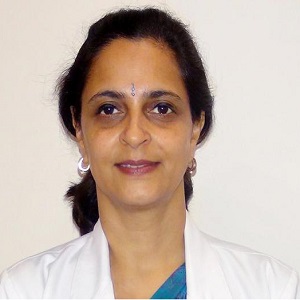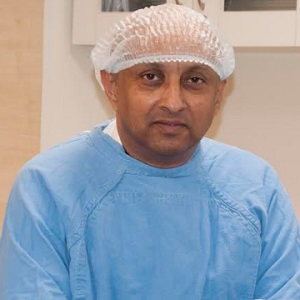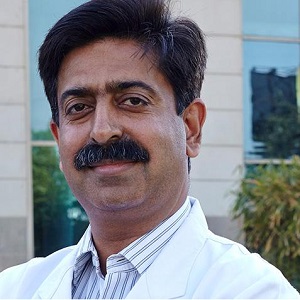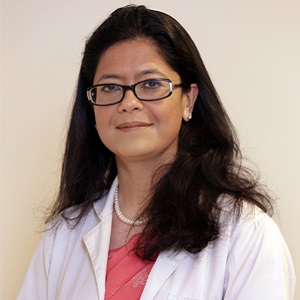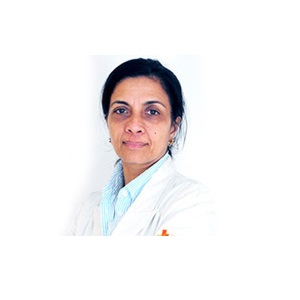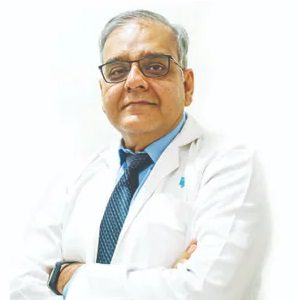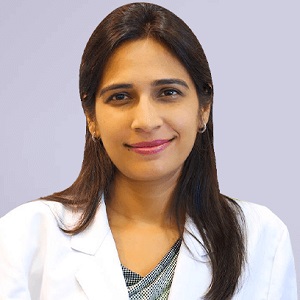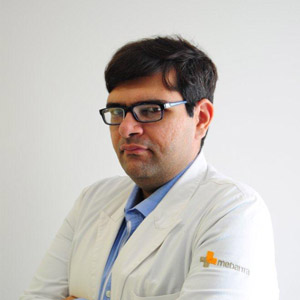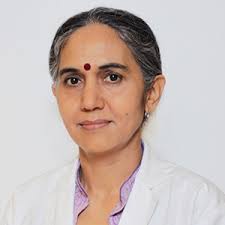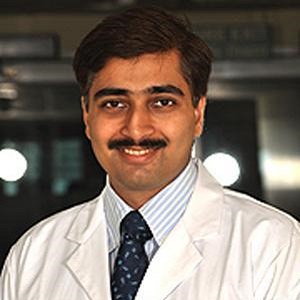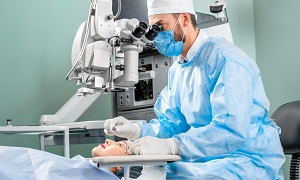Best Doctors in India for LASIK
- Ophthalmologist, Eye Surgeon, Gurugram, India
- Over 22 years’ experience
Profile Highlights:
- Dr. Anita Sethi’s proficiency lies in LASIK Surgery, Phaco Eye Surgery, Refractive Surgery, Ptosis & other Oculoplastic Surgery, Cornea treatment, and Cataract treatment.
- She has a special interest in Orbital & Oculoplastic surgery and has worked extensively with trauma and Acid burn victim. She is known to be among the best ophthalmologists in India.
- Ophthalmologist, Eye Surgeon, Gurugram, India
- Over 36 years’ experience
Profile Highlights:
- Dr. Sudipto Pakrasi is an immensely talented and extremely popular Eye Surgeon, famous for operating on most celebrities in India. Known to be one of the finest Ophthalmic Surgeons in the country, Dr. Sudipto Pakrasi has also been a pioneer in innovations as well as the Art of Cataract surgery over the past 36 years.
- He is known especially for his insightful medical treatment approach for cataract surgeries and glaucoma.
- Ophthalmologist, Eye Surgeon, Gurugram, India
- Over 18 years’ experience
Profile Highlights:
- Dr. Neeraj Sanduja is a well-trained Ophthalmologist, with huge experience in the management of vitreoretinal conditions.
- He is known to perform around 60 FFA and 75 Lasers treatments in OPD in a month. He is actively involved in ROP screening and treatment awareness programs.
- His previous experience includes a stint at William Beaumont Hospital, Michigan, the USA as a Visiting Fellow in Paediatric Retina.
- Eye Surgeon, Ophthalmologist, New Delhi, India
- Over 24 years’ experience
Profile Highlights:
- Dr. Parul Sharma is a renowned ophthalmologist and eye surgeon with a track record of outstanding performance throughout her career in academics, diagnostics, and surgery.
- She is known to keep an active interest in the latest developments of most subspecialties in ophthalmology including academics. Dr. Parul Sharma also gained experience from prestigious national and international eye institutes.
- Ophthalmologist, Gurugram, India
- Over 35 years’ experience
Profile Highlights:
- Dr. Careen Pakrasi is one of the best ophthalmologists in Gurugram. She practiced as a senior resident in Safdarjung Hospital from 1994 to 1996. Dr. Carreen Pakrasi is also a post-graduate Diploma holder in hospital management from IHFW.
- Dr. Careen Pakrasi has over three decades of rich professional experience in her field. Her area of interest lies in the treatment of Cataracts, Refractive Surgery, Glaucoma, and UVEA. She used to be the director of Pakrasi eye associates from 1996 to 2013.
- Ophthalmologist, New Delhi, India
- Over 32 years’ experience
Profile Highlights:
- Dr. Aniel Malhotra is a renowned eye surgeon in Delhi and has experience of nearly 32 years in the field.
- Since 1996 he has been working as a Senior Consultant at Indraprastha Apollo Hospital, New Delhi.
- Dr. Malhotra specializes in squint surgery, LASIK Surgery, and cataract surgery. Besides these, some significant services offered by the doctor are Cornea transplant, retinal detachment surgery, Diabetic Retinopathy, DALK, DSEK, and Cosmetic Eye Surgery.
- He got a fellowship under Padma Shree Dr. S.S. Badrinath from renowned eye hospital, Shankar Netralaya, Chennai.
- Ophthalmologist & Eye Surgeon, Gurugram, India
- Over 20 years’ experience
Profile Highlights:
- Dr. Shibal Bhartiya is an eye surgeon, who specializes in glaucoma and ocular surface diseases.
- Dr. Bhartiya is the Executive Editor of ‘Current Glaucoma Practice’, which is the official journal of the International Society of Glaucoma Surgery. She is also the Editor in Chief of Clinical and Experimental Vision and Eye Research. She is the founder-director of Medequill, a language editing service that also provides web content for medical services. Dr. Bhartiya has more than ten textbooks on glaucoma and ophthalmology to her credit.
- Ophthalmologist, Gurugram, India
- Over 12 years’ experience
Profile Highlights:
- Dr. Indrish Bhatia is a well-known ophthalmologist with a rich experience of 12 years across a host of leading medical institutions under his belt and currently works at FMRI as a Senior Consultant.
- Throughout his career, he has performed over 1000 vitreoretinal surgeries. He has also given over 6000 intravitreal injections. He also has a special interest in diabetic retinopathy.
- Eye Surgeon, Ophthalmologist, New Delhi, India
- Over 20 years’ experience
Profile Highlights:
- Dr. Amanjot Singh has been practicing medicine for 20 years. Her specialization lies in cataract surgery by phacoemulsification and LASIK. She has been conducting training in Phacoemulsification at SGHS hospital in Sohana and at Centre for Sight, New Delhi prior to joining Max Healthcare.
- She has multiple specializations including refractive surgery, corneal surgery, eye muscle surgery, oculoplastic surgery, etc. Dr. Amanjot is a member of the Delhi Ophthalmic Society and the Bombay Ophthalmic Society.
- Eye Surgeon, Ophthalmologist, Gurugram, India
- Over 15 years’ experience
Profile Highlights:
- Dr. Sameer Kaushal is a qualified eye surgeon who spent a few years in the Cornea, Cataract, and Refractive Surgery Unit of AIIMS gaining expertise in the treatment of eye diseases, especially corneal disorders.
- Dr. Kaushal also gained valuable experience in performing various eye surgeries, especially anterior segment surgeries including phaco surgery for cataracts, LASIK, and corneal transplantation. His expertise extends to the latest treatment modalities which include sutureless corneal transplants and artificial corneas.
- Throughout his career, Dr. Sameer Kaushal has also been involved in teaching as well as research activities.
Best Hospitals in India for LASIK
Indraprastha Apollo Hospital, New Delhi
- City: New Delhi, India
Hospital Highlights:
- Indraprastha Apollo Hospital is a 700-bedded multispecialty hospital in the heart of the capital of India. It is a part of Apollo Hospital group, one of India’s most reputed healthcare chains. Indraprastha Apollo Hospital has been accredited by Joint Commission International, making it the first internationally accredited hospital in the country in 2005.
- There are 52 specialties in the hospital with one of the best cardiology centers in the country. The hospital is also equipped with State of the art infrastructure facilities with the largest Sleep Lab in Asia and the largest number of ICU bed facilities in India.
- The hospital also has one of the largest dialysis units in India along with a dedicated Bone Marrow Transplant unit.
- The latest and highly advanced technologies that are installed in the hospital include Da Vinci Robotic Surgery System, PET-MR, PET-CT, Cobalt-based HDR Brachytherapy, Brain Lab Navigation System, Tilting MRI, Portable CT scanner, 3 Tesla MRI, 128 Slice CT scanner, DSA Lab, Endosonography, Hyperbaric Chamber and Fibro scan.
Fortis Memorial Research Institute, Gurugram
- City: Gurugram, India
Hospital Highlights:
- Fortis Memorial Research Institute is a multi-super-specialty, quaternary care hospital with 1000 beds. The hospital comprises reputed clinicians, and international faculty and is also equipped with cutting-edge technology. The hospital is a part of Fortis Healthcare Limited, a reputed chain of private hospitals in India.
- It is a NABH-accredited hospital that is spread across 11 acres of land and has a capacity of 1000 beds. The hospital has 55 specialties and is one of the premier health care centers in the Asia Pacific region popularly known as “the Mecca of Healthcare”.
- The hospital has 260 diagnostic centers and is also equipped with the latest and advanced techniques that include 3 Telsa which is the world’s first Digital MRI technology. The hospital also has world-class Radiation Therapy techniques which have been developed by leading technology experts from Elekta and Brain Lab.
Apollo Hospital, Chennai
- City: Chennai, India
Hospital Highlights:
- Apollo Hospitals, Chennai, is one of the best hospitals for heart care in India. Over the years, Apollo has expanded all over India, as a healthcare chain.
- India’s first ‘Only Pancreas’ transplant was performed in Apollo Hospital. The hospital is known for successfully performing Asia’s first en-bloc combined heart and liver transplant, and over the years, it has attained a remarkable achievement in the global healthcare space. Around 3-4 organ transplants are performed in the hospital per day.
- Equipped with over 500 beds, this hospital in Chennai was established in 1983 and since then has been among the most preferred hospital for patients from all over the world.
- The hospital holds accreditation of the NABH and JCI and is the first hospital in India to be ISO 9001 and ISO 14001 certified. It is also the first South Indian Hospital to receive subsequent reaccreditation from the JCI USA 4 times.
Medanta-The Medicity, Gurgaon
- City: Gurugram, India
Hospital Highlights:
- One of India’s best and largest multi-specialty hospitals, Medanta was built with the aim to bring India to the highest standards of medical care. The hospital has been providing the best medical services to its patients, since its inception, with care, commitment, and compassion.
- Equipped with 1250 beds, the hospital was founded by Dr. Naresh Trehan in the year 2009 with an aim to provide the best medical care at affordable costs. The hospital is spread across 43 acres and includes 45 operation theatres and 350 beds dedicated solely to ICU. The hospital includes over 800 doctors, and more than 22 specialty departments and has a dedicated floor for individual specialty in order to offer the best services under one roof.
- The hospital is considered one of the premier institutes in India for Cardiac Care and includes staffs and members of high caliber. The hospital has 6 distinct centers of excellence.
Max Super Specialty Hospital, New Delhi
- City: New Delhi, India
Hospital Highlights:
- One of the well-regarded providers in India committed to the highest standards of clinical excellence and patient care, Max Super Specialty Hospital is a part of Max Healthcare, which is the second-largest healthcare chain in India. Regarded as one of the most well-regarded healthcare providers in the country, Max Super Specialty Hospital is committed to the highest standards of clinical excellence as well as patient care. The hospital is also equipped with the latest technology as well as cutting-edge research. The hospital is known to deliver and ensure the highest level of patient care.
- The hospital has more than 500 beds and offers treatment for over 35 specialties. The hospital also holds the credit of having installed the first Brain Suite in Asia. This is a highly advanced Neurosurgical machine that allows MRI to be taken while surgery is ongoing.
- Other advanced and latest technologies are also installed in the hospital such as the 1.5 Tesla MRI machine, 64 Slice CT Angiography, 4D ECHO, LINAC, and 3.5T MRI machine.
Artemis Hospital, Gurugram
- City: Gurugram, India
Hospital Highlights:
- One of the most well-known hospitals in the Delhi NCR, Artemis Hospital is the first hospital in Gurugram to get accredited by the Joint Commission International.
- With more than 40 specialties, the hospital has been designed to be one of the most technically advanced hospitals in the country, with the best medical and surgical health care. The hospital has eleven special and dedicated centers, for Heart, Cancer, Neurosciences, etc.
- The latest technologies in the hospital include Endovascular Hybrid Operating Suite and Flat panel Cath Labs for the cardiovascular department, 3 Tesla MRI, 16 slice PET CT, 64 Slice Cardiac CT Scan, HDR Brachytherapy, and highly advanced Image Guided Radiation Therapy techniques (LINAC) are installed in the hospital.
- The hospital has won several awards as well, since its inception.
Gleneagles Global Hospitals, Chennai
- City: Chennai, India
Hospital Highlights:
- Established in 1999, Gleneagles Global Hospital, Chennai, is one of the top healthcare facilities in Southern India. It is part of the Gleneagles Hospital Chain, which is the fourth largest healthcare chain in the country. The hospital specializes in multi-organ transplants of kidneys, liver, lungs, heart, etc.
- The hospital has an excellent infrastructure and state-of-the-art lab and equipment set-up. The hospital boasts cutting-edge technologies, a highly skilled team of doctors and surgeons, and trained support staff. Located in Perumbakam, Chennai, it is one of India’s premier health care destinations. The hospital has performed some of the most complex surgical and clinical procedures in India including multi-organ transplantations.
- The hospital’s lung transplantation program is one of the best in the country. The hospital is known for having performed India’s first single lung transplant and first minimal invasive lung transplant. It is also the only Indian hospital to be associated with King’s College Hospital, London, United Kingdom for liver transplantations.
Fortis Hospital, Mulund, Mumbai
- City: Mumbai, India
Hospital Highlights:
- Fortis Hospital in Mulund is a 315-bed multi-speciality tertiary care hospital with five JCI accreditations that offers a wide variety of diagnostic and therapeutic services. The Fortis Hospital in Mulund delivers patient-centred treatment with cutting-edge technology, highly skilled and experienced surgeons, and paramedical staff.
- This institution houses Maharashtra’s largest multi-organ transplant centre. It is also the first heart transplant centre in western India to conduct 100 or more consecutive heart transplants in under four years. It is the only hospital in the city to have multi-organ transplants and has handled the youngest patient for angioplasty. Fortis Hospital Mulund now boasts the first advanced surgical robot in central Mumbai.
- Cardiology and heart surgery, urology, nephrology, neurosciences, orthopaedics, digestive care, emergency and critical care, and maternity care are among the services provided by the hospital.
Kokilaben Dhirubhai Ambani Hospital, Mumbai
- City: Mumbai, India
Hospital Highlights:
- Kokilaben Dhirubhai Ambani Hospital, Named after the wife of Indian industrialist Dhirubhai Ambani, the founder of Reliance Industries, this is one of the top hospitals in Mumbai. This 750-bed multi-specialty hospital became operational in 2009. Known as one of India’s most advanced tertiary care facilities, the hospital is designed to raise India’s global standing as a healthcare hub, with an emphasis on excellence in clinical services.
- Kokilaben Dhirubhai Ambani Hospital uses Protocol and Care Pathway based treatment models to ensure the best outcomes for patients.
- The hospital represents a confluence of top-notch talent, cutting-edge technology, state-of-the-art infrastructure, and, most importantly commitment.
- The hospital also holds the accreditation of the NABH, NABL, CAP, and JCI.
- The hospital has been recognized as the No. 1 Multispecialty Hospital in Mumbai and the West Zone for the fifth year in a row in 2020 by The Week.
Fortis Escorts Hospital, New Delhi
- City: New Delhi, India
Hospital Highlights:
- Over the last 33 years, the Fortis Escorts Heart Institute has set new standards in cardiac treatment with groundbreaking research. It is now known around the world as a centre of expertise for Cardiac Bypass Surgery, Interventional Cardiology, Non-invasive Cardiology, Paediatric Cardiology, and Paediatric Cardiac Surgery.
- The hospital has cutting-edge laboratories that perform a wide range of diagnostic tests in Nuclear Medicine, Radiology, Biochemistry, Haematology, Transfusion Medicine, and Microbiology.
- Fortis Escorts Heart Institute boasts a diverse group of bright and experienced doctors who are backed up by a team of highly qualified, experienced, and devoted support professionals as well as cutting-edge equipment such as the recently installed Dual CT Scan.
- Approximately 200 cardiac doctors and 1600 personnel currently collaborate to manage over 14,500 admissions and 7,200 emergency situations each year. The hospital now has a 310-bed infrastructure, as well as five cath labs and a slew of other world-class amenities.
LASIK
LASIK (Laser-assisted in situ keratomileusis) is the most commonly performed laser eye surgery used to treat eye disorders, viz. myopia (nearsightedness), hyperopia (farsightedness) and astigmatism. Like other types of refractive surgeries, this procedure can reshape the front surface (cornea) of the eye to enable light entering the eye to focus on the retina without the need for glasses or contact lenses.
LASIK is a pain-free procedure and it requires only around 15 minutes treating both the eyes. One’s vision can improve immediately and can stabilize in as little as 24 hours. During this surgery, a special type of laser is used to precisely change the shape of the dome-shaped clear tissue in the cornea.
Purpose
The purpose of LASIK is to treat one of these vision problems-
- Myopia (Nearsightedness): When a person’s eyeball is slightly longer than normal or when the cornea curves too sharply, light rays focus in front of the retina and end up blurring distant vision. In this condition you can see close objects quite clearly but those that are far away can appear blurry.
- Farsightedness (Hyperopia): When your eyeball is shorter than average or your cornea is too flat, light focuses behind the retina instead of on it and this ends up making near vision and sometimes even distant vision quite blurry.
- Astigmatism: When the cornea curves or flattens unevenly, it results in a disorder called astigmatism which can disrupt the focus of near and distant objects.
Preparation
Before LASIK you would need to meet with a coordinator or eye surgeon who can talk to you regarding what to expect during and after the procedure. You will need to provide your medical history and then undergo a full eye exam. Some tests to measure the thickness of your eye, refraction as well as eye pressure will also be included.
If you are wearing contact lenses, it is important not to wear them for at least three weeks until you have had your evaluation. LASIK surgery is considered an elective surgery which is why most insurance companies will be unwilling to cover its cost. You might need to pay the expenses out of your pocket.
It is also important that you don’t use eye makeup, cream, perfumes or lotions on the day before and after your surgery. You might also receive instructions from your doctor to clear your eyelashes daily or more in the days leading up to your surgery in order to remove the debris as well as minimize the risk of infection.
During the surgery
LASIK surgery usually won’t take longer than 30 minutes. During this procedure, you are supposed to lie on your back in a reclining chair. You might also be given medicine which will provide relaxation.
After some numbing eye drops are placed on your eye, your doctors will use an instrument to hold the eyelids open. Then a suction ring will be placed on your eye, before cutting the corneal flap. This might cause a feeling of pressure and your vision might dim a bit.
Your eye surgeon will next use a small blade or cutting laser to cut a small hinged flap away from the front of your eye. Folding back this flap can allow your surgeon to access the part of your cornea which needs reshaping.
Your surgeon will then reshape parts of your cornea using a programmed laser. You will be asked to put your focus on a point of light during the procedure. This helps keep your eye fixed, while the laser can reshape the cornea.
If you require LASIK surgery in both the eyes, generally your surgeon will conduct the procedure on the same day.
After the surgery
Your eyes will be dry and your doctor will give you prescription eye drops in order to prevent infection and inflammation, as well as drops to help keep the eyes moist. You might also experience a slight burning feeling or blurry vision for a brief period when are using them. Also remember not to use any kind of eye drops unless you’ve consulted your doctor about them.
Do not swim or use a hot tub for at least two weeks post-surgery. You can also consider getting a plastic shield for the protection of your eyes while you’re sleeping for a few days.
Though you will be able to see right after the surgery itself, you won’t experience a clear vision right away. It takes around two to three months after the surgery is performed and your eye can heal back to normal. Your chances for improved vision also depend on how good your vision was before your surgery.
Around 80 percent of people, who have undergone LASIK refractive surgery, haven’t required their glasses or contact lenses for the majority of their activities.
Benefits
- LASIK has been around for over 2 decades and 96 percent of patients are able to reach their vision goals within a short time.
- There is almost no pain involved in the surgery.
- No bandages or stitches are involved.
- Even if your vision changes with age, your doctor will be able to adjust it.
- After the operation, you will hardly need to use your glasses or contact lenses.
Risks
- Dry Eyes- LASIK surgery can cause a temporary decrease in the production of tears. Due to this, for around six months after the surgery, your eyes may feel unusually dry as they heal. This can cause a reduction in the quality of your vision.
- Undercorrections- If the laser ends up removing too little tissue from your eyes, the clearer vision results you were expecting will not be achieved. Undercorrections are more common among nearsighted people. If this happens, you might need to undergo another LASIK Procedure within one year to remove more tissue.
- Overcorrections- It is possible that the laser will remove too much tissue from your eye which can lead to overcorrection. Overcorrections are more difficult to fix as compared to undercorrections.
- Glare, Halos, or Double Vision- Sometime after the surgery, you can have difficulty seeing during the night time and this might last for a few days to a few weeks. You may also notice a few problems like light sensitivity, glare, halos around bright lights or even double vision.
- Flap Problems- Folding back or removing your eye’s flap from its front can lead to complications such as infection or excessive tears. This can lead to the outermost corneal tissue layer to grow abnormally underneath the flap during your healing process.
- Regression- Despite the surgery, if your vision slowly changes back to your original prescription, it is called regression. This complication is less common.
- Vision loss or changes- Even though it is rare, in some situations, loss of vision can be caused by surgical complications. Sometimes people may also not see as sharply or clearly as they did before.

